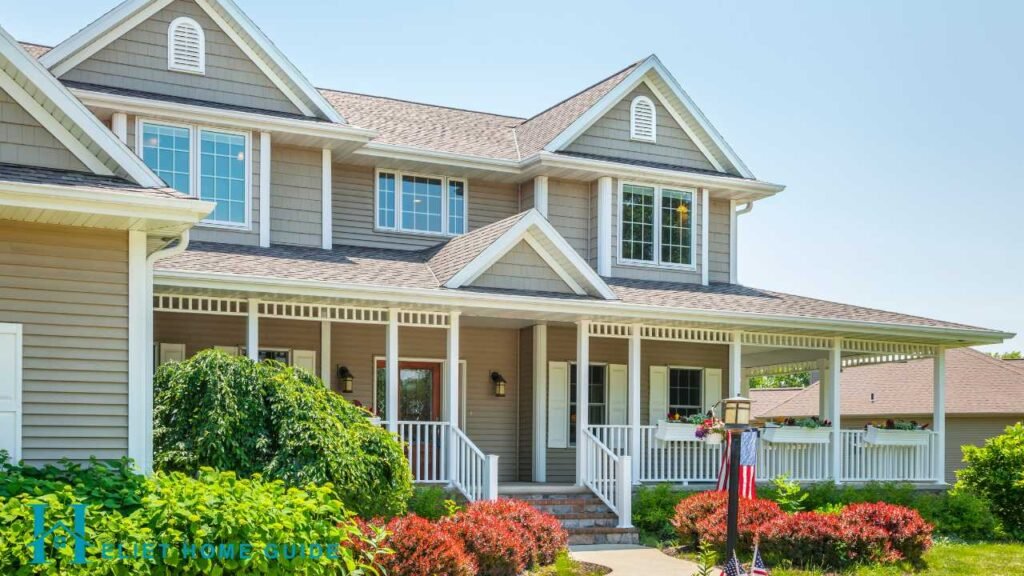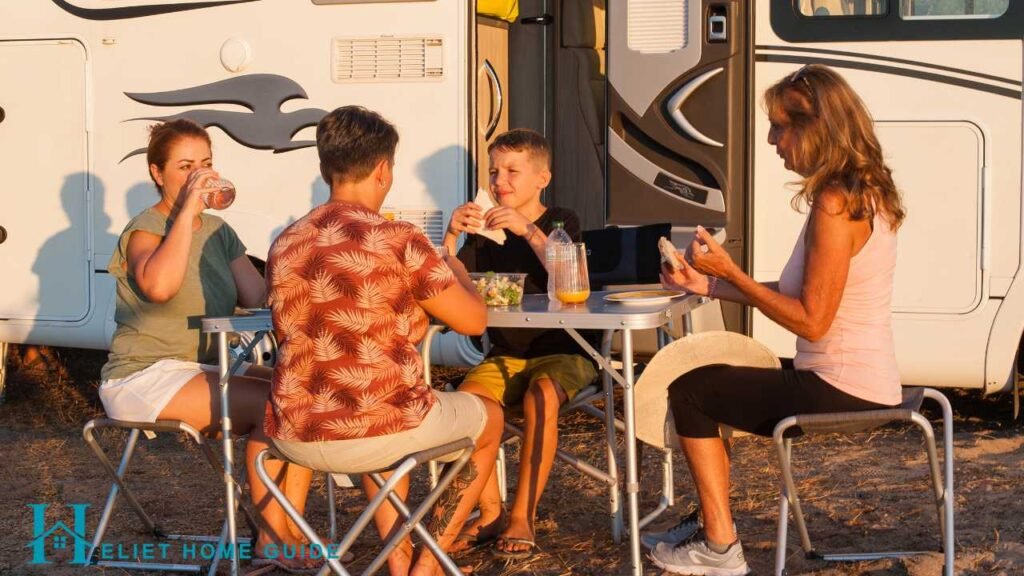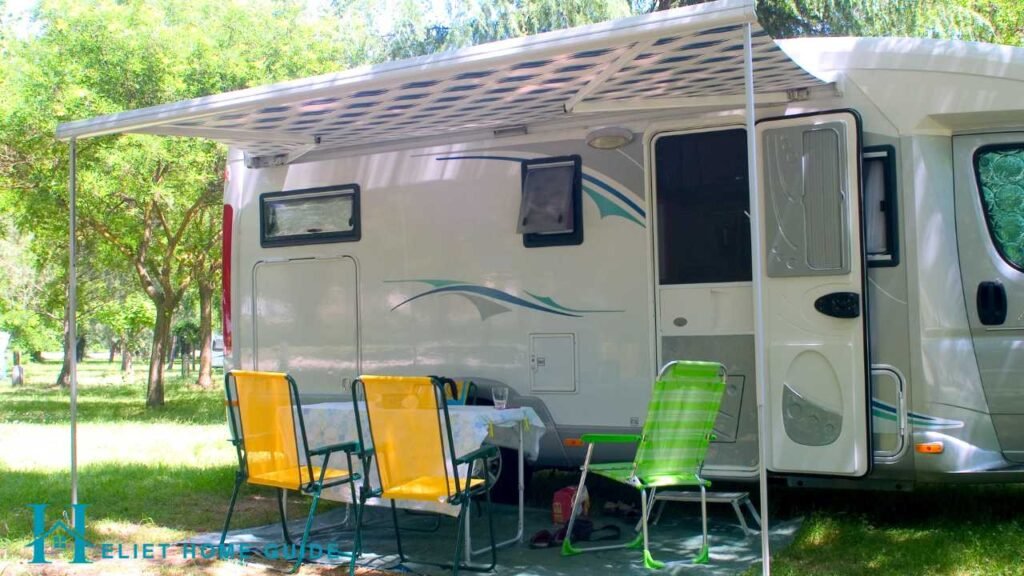Looking for a motor home can be exciting, but finding the best one takes effort. Whether you’re considering a recreational vehicle (RV) for road trips or full-time living, it’s important to explore the market before making a decision. Take time to shop around and compare models, features, and prices to get the most value for your recreational dollars. A smart way to buy is by checking both new and used options, as each has its benefits. A new RV comes with warranties and the latest features, while a used one can save you money. Prioritize comfort, fuel efficiency, and maintenance costs to ensure your recreational investment is worth it.
“The best journeys in life are those taken on wheels.” – Unknown
Essential Steps to Find the Perfect Motor Home
- Identify the type of motor home that fits your needs, desires, and budget by considering key factors like size, price, and usage for weekend trips or extended travel. If you’re also considering a stationary home investment, you might want to read about how to buy a vacation home overseas.
- Choose between motorized or towed models based on space requirements and travel plans.
- Visit an RV show to explore different models, speak with RV dealers, and get expert recommendations.
- Ask current owners, including friends and family members, about must-have features and real-life experiences.
- Research by viewing various models on Internet sites or subscribing to RV magazines for insights.
- Rent an RV for a weekend or a few days to test drive the one you’re considering.
- Plan where to store or park your motor home, factoring in storage costs, parking regulations, and parking space in your neighborhood.
- Review your finances and explore financing options through a dealership or lending institution before making an offer on your final selection. You might also want to explore different ways to buy a home for zero down to see how financing strategies compare.

| Step-by-Step Process for Selecting Your Ideal RV | Description |
| 1. Identify Your Needs | Consider your travel plans, budget, and required features. |
| 2. Choose Between Motorized or Towed | Decide if you want a drivable RV or one that can be towed. |
| 3. Visit an RV Show | Explore different models and get recommendations from dealers. |
| 4. Ask Owners for Advice | Talk to experienced RV owners about must-have features. |
| 5. Research Online | Check RV magazines and websites for insights. |
| 6. Rent Before You Buy | Test-drive an RV for a weekend to see if it suits your needs. |
| 7. Plan for Storage | Consider parking regulations and storage costs. |
| 8. Explore Financing Options | Review dealership and lending institution offers before purchasing. |
“An RV is not just a vehicle, it’s a home on wheels with endless possibilities.” – Anonymous
A Smarter Approach to Choosing the Right RV
Buying a Motor Home is a big decision, and with so many sizes, shapes, and prices available, it’s important to study your options carefully. Whether you’re looking for a compact camper or a spacious luxury RV, the key is to find the right fit for you. I remember when I was searching for my first RV—I had to compare different layouts, amenities, and budget ranges to make sure I was making the best choice. Each model offers unique benefits, so exploring various homes can help you understand what works best for your lifestyle. Take time to visit dealerships, check out online reviews, and even rent a few before making your final decision. The perfect RV isn’t just about the looks—it’s about how well it suits your travel plans and comfort needs.

“Traveling in an RV is about creating memories that last a lifetime.” – Unknown
Key Considerations When Purchasing a Motor Home
When buying a new motor home, remember that recreational vehicles lose value quickly. Just like automobiles, they depreciate rapidly, especially in the first few years of use. I learned this the hard way when I purchased my first RV—within just a couple of years, its resale price dropped significantly. If you’re planning to sell or upgrade later, consider buying a slightly used model to avoid the biggest hit on depreciation. Researching market trends and resale values can help you make a smarter investment and keep your losses minimal. Understanding how assets lose value over time can be crucial when making big purchases—learn more about assessing the financial risks of homeownership.

| Important Factors to Remember Before Buying | Understanding Depreciation and Resale Value |
| Depreciation | RVs lose value quickly, especially in the first few years. |
| Resale Value | Buying slightly used can help avoid major depreciation losses. |
| Maintenance Costs | Factor in fuel, repairs, and upkeep expenses. |
| Insurance Costs | Get quotes before purchasing to understand the financial commitment. |
“Invest wisely in an RV, and the road will always welcome you.” – Unknown
“Smart Ways to Choose the Best One” Paragraph – This section offers personal insights and a strategic approach to selecting the right motor home, emphasizing research, comparisons, and real-life experiences.
“Important Things to Keep in Mind” Paragraph – This part highlights depreciation concerns, explaining how RVs lose value over time and why a used model might be a better financial choice.
“Steps to Choosing the Right Motor Home” Paragraph – The detailed breakdown of steps like visiting RV shows, talking to current owners, researching online, and renting before buying is essential advice that hasn’t been included.
Depreciation and Resale Value – The financial impact of depreciation and the importance of considering resale value when purchasing a motor home are critical factors missing from the content.
Frequently Asked Questions
What should I consider before buying a motor home?
Assess your budget, size requirements, travel plans, and maintenance costs to ensure the RV meets your needs for short trips or full-time living.
Is it better to buy a new or used motor home?
A new motor home offers warranties and modern features, while a used one can save money and avoid major depreciation losses in the first few years.
How much does a motor home typically cost?
Prices range widely from $10,000 to over $500,000, depending on size, features, and brand. Financing options can help manage costs effectively.
What are the main types of motor homes?
Motor homes come in Class A, B, and C models, each offering different levels of space, luxury, and drivability for various travel needs.
What are the ongoing expenses of owning a motor home?
Costs include fuel, insurance, maintenance, repairs, campground fees, and storage, which should all be factored into your budget before purchasing.
How do I finance a motor home?
You can secure financing through banks, credit unions, RV dealerships, or specialized lenders offering loans tailored for recreational vehicles.
Should I rent an RV before buying one?
Yes, renting allows you to test different models, layouts, and features, helping you make an informed purchase decision.
Where can I store my motor home when not in use?
Storage options include home garages, rented storage units, and RV parks, with costs depending on location and facility amenities.
How quickly does a motor home depreciate?
New RVs lose value rapidly, with the highest depreciation in the first three to five years, making used models a smarter investment.
What are the best ways to research motor homes?
Visit RV shows, read online reviews, talk to experienced owners, and explore dealership options to find the best motor home for your needs.
Conclusion
Choosing the right motor home is an exciting journey that requires careful planning, research, and consideration of your lifestyle and budget. Whether you opt for a new or used model, prioritizing comfort, maintenance costs, and resale value will help ensure a smart investment. Take advantage of expert advice, online resources, and test rentals to find the best fit for your needs. With the right approach, your motor home can become more than just a vehicle—it can be your gateway to adventure, freedom, and unforgettable road trip experiences.

Rhys Henry is a Luxury Realtor & Senior Partner at Tyron Ash International, specializing in South East London & Kent Division. A dedicated real estate agent, Rhys is passionate about helping clients navigate buying, selling, and investing in luxury properties with expert guidance and industry-leading strategies.

